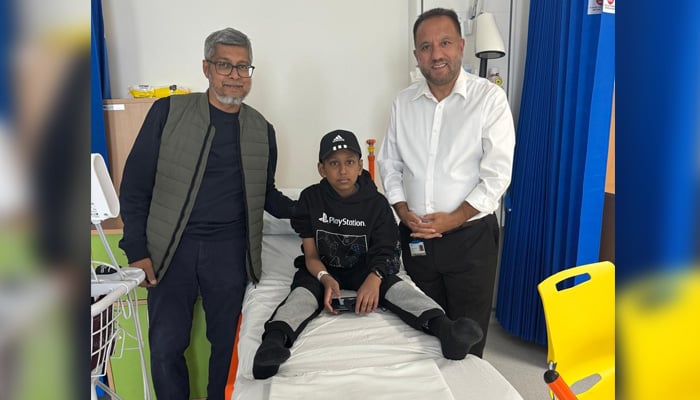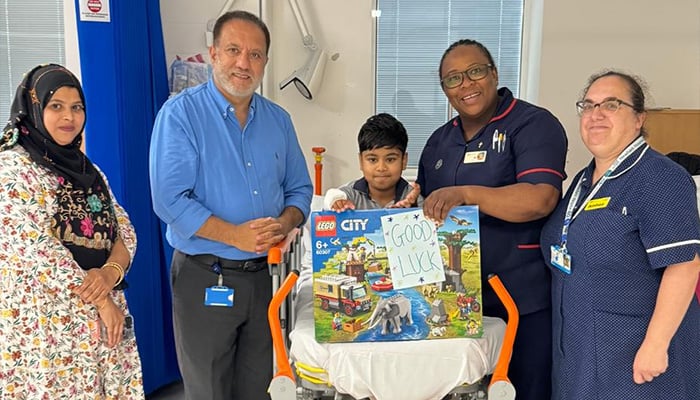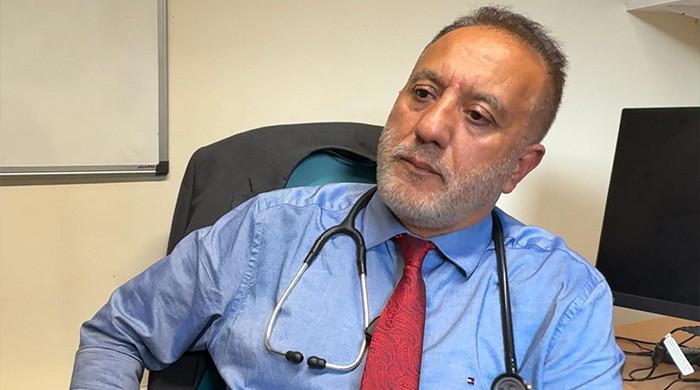London: British-Pakistani Pediatric Consultant Dr. Sher Bahadur Anjum has successfully treated two young Thalassemia patients through gene therapy and transformed their lives into complete normality-for the first time in Britain.
Dr. Anjum, who specializes in hematology (blood disorders) at Newham Hospital in East London, part of Barts Health NHS Trust, led a team of caregivers at Newham Hospital to treat the two young boys, now aged 11 and 13, with Bangladeshi background.
Thalassemia is a genetic condition that is most common in those who are Pakistani, Indian and Bangladeshi. It is a blood disorder and people with thalassemia have low iron and oxygen levels in the body. This can make them seriously anemical – tired, shortness of breath and pale.
To treat their thalassemia, the two patients had to go to the hospital for blood transfusions every month, which had a major impact on their quality of life. The only cure is a stem cell or bone marrow transplantation, but this is not very often done because of the risks involved and it can be difficult to find donors.

Thanks to an innovative new gene therapy administered by Dr. Anjum and his team, who work with Great Ormond Street Hospital (GOSH), live the two young boys, now aged 11 and 13, now healthy, happy life without further hospital visits or regular blood transfers.
Before receiving the 4-week treatment at Gosh, Dr. Anjum and Health Service at Newham Hospital extensive care before re -treatment over three months, which included blood testing, vaccinations and maintaining the correct hemoglobin levels. Their care in Newham also continued long after treatment with surveillance, blood counts and control of the side effects.
When Dr. Anjum first approached the families, they were both hesitant to start this therapy as it was new and requires an initial longer hospital stay. However, after almost 12 months of talking to them, listening and answering their questions and concerns, they were reassured to start treatment for their children.

Now their lives have changed forever thanks to the treatment and they want to encourage other South Asian parents to take the offer if doctors find them eligible.
Dr. Anjum, who originally studied in Gilglit Baltistan’s Astoria Village and then Abbottabad Medical College (AMC) told Pakinomist News: “Generapy is a new treatment aimed at solving the problem by its root. Doctors take some of your child’s own blood stem cells, add a healthy copy of the gene needed bodies after special.
“Both of my patients had grown up by knowing other than hospital visits and transfusions. Their parents had shouldered years of emotional and practical matches and did everything to keep their children well. When Barts Health NHS Trust was asked to identify patients for the new gene therapy program, we saw a one-time-in-a-lifetime opportunity.
“But convincing the families was not simple. Of preparation, but the courage of these families led them through.
“Six months later, the transformation is extraordinary. These children, once tied to the hospital’s beds and transfusion plans, are now living normal life without the need for blood transfusions. Their energy has returned, their futures are brighter and their families have finally been released from the infinite cycle of hospital visits.”
Dr. Anjum said that for the first time, families affected by thalassemia can imagine a future in which their children are free from the shadow of chronic illness. “It shows the power of gene therapy to make despair hope, and it emphasizes what cooperation within the NHS can achieve when we put patients and families in the heart of care.”



